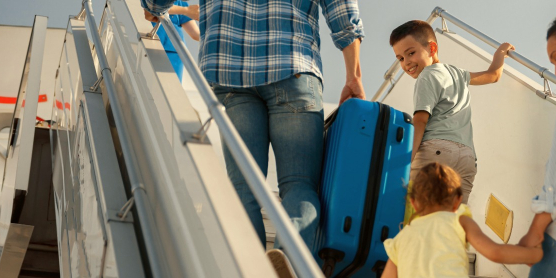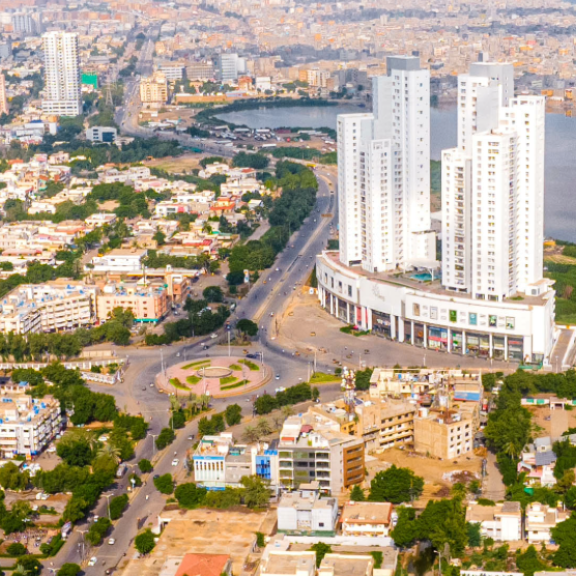
Emigrate to Pakistan
Emigrate to Pakistan: Find out the most important information for your stay here
Anyone thinking about emigrating to Pakistan will find many advantages that make this country an attractive destination. The cost of living is significantly lower compared to many other countries, which makes emigrating to Pakistan particularly interesting for people looking for a more affordable life. Pakistan also offers a rich and diverse culture that is deeply rooted in traditions and characterized by a mixture of different ethnic groups and religions. Anyone wishing to emigrate to Pakistan will also encounter the friendliness and hospitality of the people, which make life there particularly pleasant. Pakistan's landscape is also impressive: from the majestic mountains of the Himalayas to the picturesque beaches of the Arabian Sea - a true paradise for nature lovers and adventurers looking for a new home in a fascinating country.
Facts about Pakistan
Capital City
Islamabad
Population
240.5 million
Surface Area
340,509 mi² or 881,913 km²
Continent
Asia
Official Language
Urdu & Englisch
Currency
Pakistani rupee (PKR)
Emigrating to Pakistan: An overview of the political system
Pakistan is a parliamentary republic with a president as head of state and a prime minister as head of government. The country has a federal structure and is divided into four provinces and a capital territory. Islam plays a central role in politics and society.
Anyone wishing to emigrate to Pakistan should be aware that there are numerous political parties, some of which operate nationally and others regionally. The military has historically had a strong influence on politics and has taken power on several occasions. Religious groups also influence the political landscape, especially in terms of legislation and public opinion. If you are looking to emigrate to Pakistan, it is important to consider these political factors.
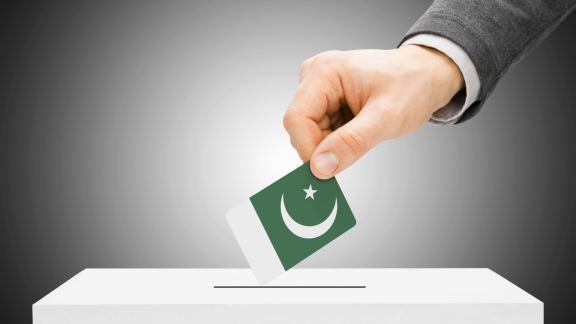
Climate in Pakistan: Important information for emigrants
The climate in Pakistan varies depending on the region and season. Emigrating to Pakistan means being prepared for hot summers in the lowlands, where temperatures can reach over 40°C, while the northern mountain regions are cooler. The monsoon season from July to August brings rain, which often leads to flooding.
In winter, temperatures in the lowlands are mild to cool (10-15°C), while in the northern mountains it often drops below freezing and there is snow. If you want to emigrate to Pakistan, you can expect an alpine climate in the north, a tropical climate in the south and a continental climate in the center.
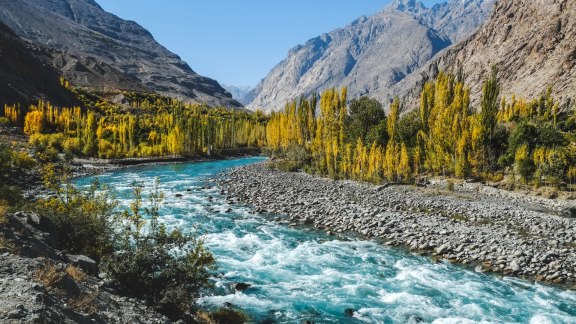
Healthcare system in Pakistan: Important facts for emigrants
Expats emigrating to Pakistan should be aware that there is state health insurance, but it only covers part of the population and often does not cover the cost of expensive treatment. It is therefore advisable for expats to take out private health insurance to gain access to better healthcare and cover high treatment costs.
The quality of healthcare varies depending on the region, with rural areas often being less well served than urban areas. In addition, patients in Pakistan often have to bear a large part of the treatment costs themselves, as state health insurance only covers part of them. Anyone wishing to emigrate to Pakistan should therefore be well informed about the healthcare system.

Emigrating to Pakistan: An overview of the economic situation and quality of life
In Pakistan, the gross domestic product per capita amounted to 1,587.6 US dollars in 2024. The Gini coefficient of wealth describes the distribution of wealth. The indicator is an established, internationally comparable measure of wealth inequality. It is measured on a scale from zero to one. The higher the value, the greater the inequality. The Gini coefficient in Pakistan is expected to be 0.31 in 2025 (source: Statista).
The quality of life in Pakistan is influenced by various factors and can be perceived differently depending on individual needs and expectations. Social relationships, especially the family, play a central role in Pakistan and can have a positive influence on the quality of life. It is important to be open to new experiences and to adapt to local conditions in order to better integrate and experience local life.
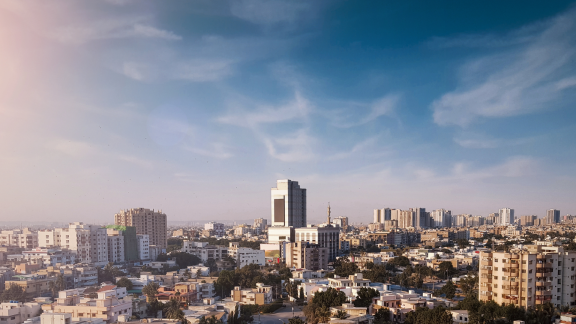
National holiday
Independence Day
K2: The second highest mountain in the world
At 8,611 meters, K2, also known as Mount Godwin-Austen or Chhogori, is the second highest mountain in the world after Mount Everest. It is located on the border between Pakistan and China and is part of the Karakoram mountain range, a part of the Himalayas. K2 is considered one of the most dangerous and challenging mountains on earth, mainly due to its steep slopes and unpredictable weather conditions. The name "K2" dates back to the surveying times in 1856 and means "Karakorum 2". The best view of this impressive peak is from Concordia Square.
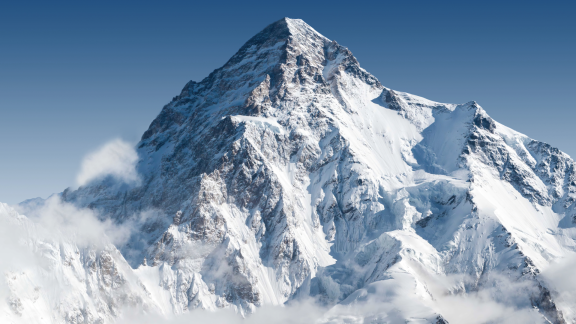
Emigrate to Pakistan - Entry Requirements
Entry is possible for German nationals with the following documents:
- Passport: Yes
- Temporary passport: Yes
- Identity card: No
- Temporary identity card: No
- Children's passport: Yes
Notes/minimum validity:
Travel documents must be valid for at least six months at the time of entry.
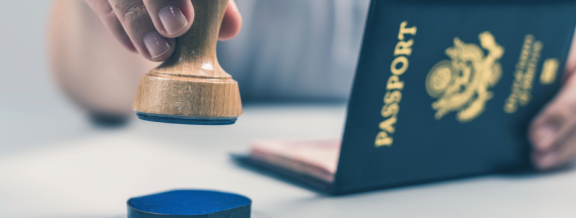
FAQs for emigrating to Pakistan
Where can I find relevant information about my country of entry and the entry regulations that apply there?
We have compiled destination country information as well as entry requirements and customs information for many countries in the Relocation Service section of our website and are constantly expanding this section.
Can I use my own container that I already own for the move with DACHSER & KOLB?
For every removal, which we at DACHSER & KOLB always offer as a door-to-door (full service) removal, a container is rented for the duration of the removal. We therefore do not offer the option of using your own container.
Who is responsible for my move abroad and the services I need there?
As a FIDI member, we work abroad with selected, long-standing partners who work in accordance with our service standards.
Are my removal goods insured in the event of damage?
For every overseas move, we naturally cover transportation insurance at current value for the used household goods and personal belongings
What types of transportation do you offer for overseas relocation?
It is generally possible to carry out overseas removals via air freight or sea freight. In the case of sea freight, it is possible to ship the removal goods as additional cargo (“LCL shipment” with Liftvan) or with a container (FCL shipment in 20 feet, 40 feet or 40 feet high cube). We will be happy to discuss which option is best for you in a personal consultation.
When and how must the move be paid for and what is the payment deadline?
You will receive an invoice a few weeks after placing the order and pay the full amount directly in advance.
Do I have to pay taxes and customs duties on my removal goods?
Removal goods can be imported tax and duty-free into most countries if you have a valid residence permit. We will be happy to check the options for importing the removal goods for your desired destination country in a personal consultation.
Are you interested in moving to Pakistanor another destination country?
Then do not hesitate and contact us today.
Sabrina Klier
Customer Service & Sales - AIR & SEA



